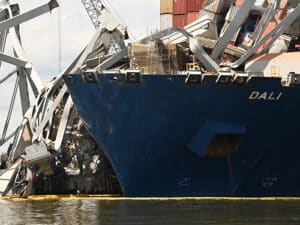
Op-Ed: Clean technologies and the existing fleet
Written by
Luke de Freitas, Head of Silverstream’s Retrofit Delivery Unit
By Luke de Freitas, Head of Silverstream’s Retrofit Delivery Unit
Retrofitting verified clean technologies is an imperative to ensure continuity of service for the enormous global internationally-trading fleet.
The existing commercial fleet cannot wait for new fuels to help them meet decarbonization mandates such as the IMO’s Carbon Intensity Indicator (CII). Plus, for older tonnage these fuels may never be a practical solution—yet all these vessels help to keep international trade alive—so a solution must be found.
Slow steaming won’t ensure compliance with IMO regulations for long, and existing vessels cannot simply be scrapped and replaced. The retrofit of independently-verified clean technologies—proven solutions that will keep them compliant for their remaining lifecycle—is therefore needed, starting today.
Drydocking
To meet the needs of shipowners, these technologies should be able to be installed in a normal drydocking schedule and should not have a significant impact on the design or layout of the vessel. Silverstream’s air lubrication system is a clean technology that meets these requirements. Installation of the Silverstream System can be carried out during a normal drydocking without extending off-hire time. Design, equipment manufacture, and installation/commissioning can be completed in six months. This short lead time enables owners to tackle regulation timeline challenges at upcoming drydock periods.
The system provides significant, measurable reductions in emissions – reducing average net fuel consumption and associated greenhouse emissions by 5-10%. These savings are relevant today, and, as a fuel-agnostic solution, the payback time will be considerably shorter when new, more expensive and less energy-dense fuels are introduced on existing vessels or newbuilds in future.
The reductions have been independently and scientifically verified for a range of vessel types. Testing and verification has included classification society Lloyd’s Register and Hamburg-based maritime testing facility HSVA. And as a technology that can be easily switched off and on (which is not the case for all clean technology), Silverstream’s air lubrication solution provides ship operators with a simple way of accurately measuring its performance in real-life operations for their specific ships and specific voyages.
Shippers
There are now more than 130 vessels contracted to have the Silverstream System installed, with 28 in-service today. Silverstream’s customers include MSC, Maersk, Grimaldi, Shell, Vale, Carnival and ADNOC L&S, amongst other major industry names. These orders span tankers, cruise ships, Ro-Ros, PCTCs, LNGCs and bulk carriers. Many of these orders are from repeat customers, which highlights the level of satisfaction and trust in the market on the performance of the proven technology.
Air lubrication stands out as a solution because it is relatively simple to install and use and has low maintenance requirements. The Silverstream System represents a lifecycle solution for efficiency, with class-approved components that are designed to last the full lifespan of a vessel. It is flexible and modular, and easily accommodated within a vessel design. This is especially useful for retrofits, making it adaptable to the current layout of a vessel.
Establishing framework agreements and working relationships with key players such as shipyards and installation contractors will enable shipowners to have confidence in deploying proven technologies. Silverstream’s approach is time-proven to ensure smooth project implementation based on its ability to maintain a diversity of suppliers and a resilient global supply chain. Silverstream has developed a knowledge base of shipyards, installations contractors and specialist engineering consultancies. It can support owners through the entire project lifecycle, from design to installation, commissioning and through life support when in-service.
The IMO is already dictating requirements for the efficiency of existing and new vessels, and regional legislation may further tighten the requirement to invest in clean technologies. It has also become a commercial necessity, driven by investors, shareholders and public demand.
It is therefore critical to incorporate proven, fuel-agnostic clean technologies into shipping’s decarbonization pathway; no matter the fuel, they can cut fuel bills and emissions and provide operational flexibility to vessels. They offer the best way to reconcile the gap between the industry’s need to decarbonize and its need to remain commercially viable. On the existing fleet, proven clean technologies can help shift vessels towards decarbonization and set the stage for further fleet renewal and investments.




